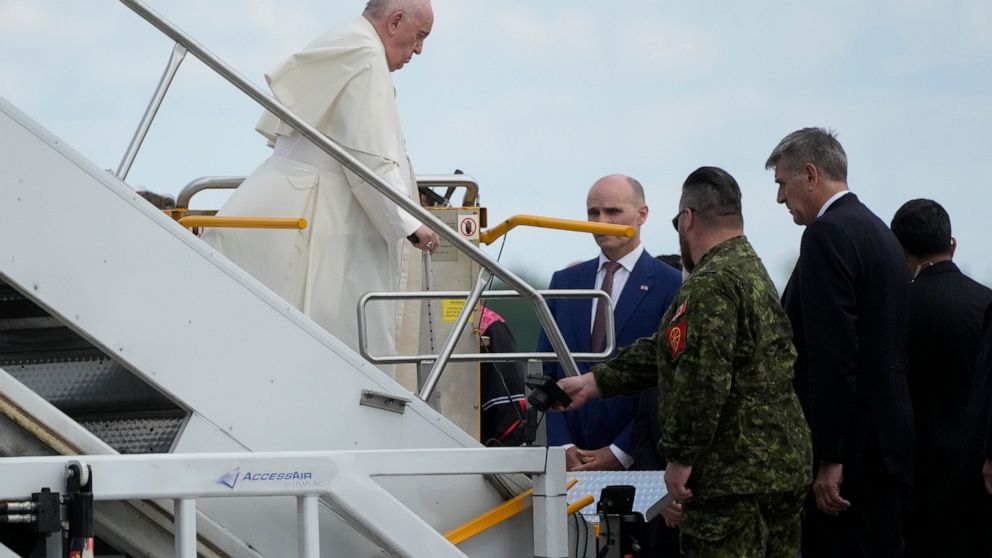QUEBEC CITY — Pope Francis arrived in Quebec on Wednesday at a time when many French Canadians in the province are not only moving away from religion but explicitly rejecting it, embracing secularization long after their forebears built their identity on the rock of the Catholic Church.
Pews these days are rarely filled, hundreds of churches have closed and the provincial government has banned public service workers from wearing religious symbols.
“A lot churches are closing, and it’s very telling about the fading support that the population gives to the church,” said Jean-François Roussel, a theology professor at the Université de Montréal. “Some people are talking about the collapse of the Catholic Church in Quebec.”
Although nearly all of the province’s 6.8 million French speakers have Catholic roots, fewer than 10% attend Mass regularly, compared with 90% several decades ago.
Once-pervasive church influence over politics and culture has faded almost totally, and in what is known as the Quiet Revolution, it lost its central role in areas such as education and health care. That’s significant considering the Church founded Quebec’s school system and for decades controlled education, teacher training, welfare and health care.
Daniel Béland, a political science professor at McGill University in Montreal, said Quebec was quite similar to Ireland and Southern Europe before 1960. At the peak of its influence from the 1930s to the 1950s, the church dominated people’s lives from conception to death and was closely intertwined with political leadership.
“It controlled cultural and intellectual life right down to what kind of books could be published, what sort of paintings and sculpture exhibited, what kind of plays performed,” wrote Stephen Clarkson and Christina McCall, biographers of Quebec-born former Prime Minister Pierre Trudeau, who died in 2000.
The defeat of a conservative pro-Church party at the 1960 provincial elections and the victory of a progressive Liberal government empowered a new economic elite that pursued secularism, Béland said.
“Church attendance and fertility rates, which used to be among the highest in the Americas, also fell dramatically over a relatively short period of time, as Quebec modernized and its Francophone majority became more educated, prosperous and urbanized,” Béland said.
French Canadian nationalism in Quebec had been very much centered on Catholicism, but after the Quiet Revolution, its most…
Click Here to Read the Full Original Article at ABC News: International…

